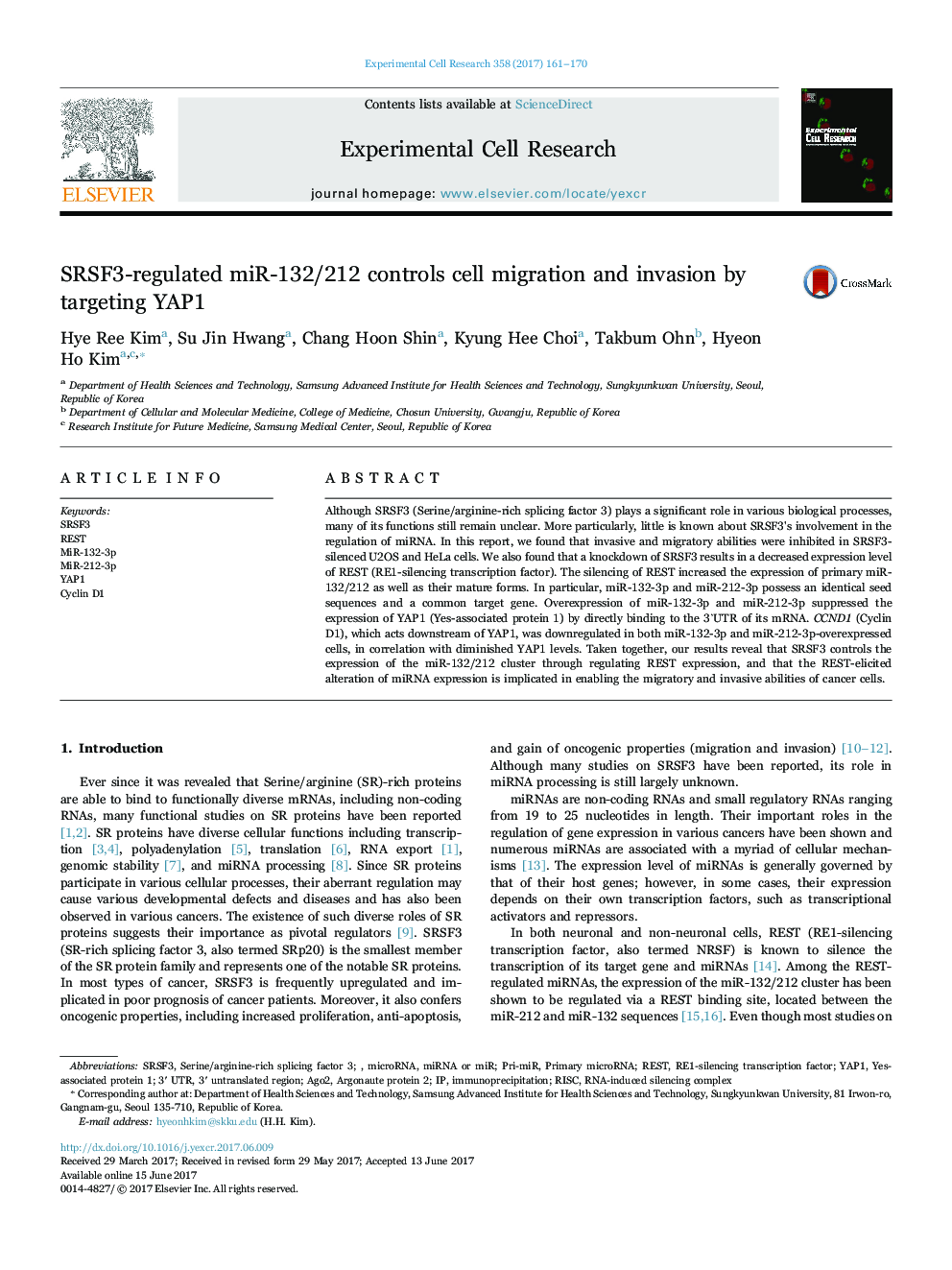| Article ID | Journal | Published Year | Pages | File Type |
|---|---|---|---|---|
| 5527153 | Experimental Cell Research | 2017 | 10 Pages |
â¢REST is involved in the SRSF3-mediated migration and invasion.â¢SRSF3 regulates the expression of miR-132/212 through REST.â¢miR-132/212 suppresses YAP1 expression by directly binding to the 3â²UTR of its mRNA.â¢miR-132/212 inhibits migratory and invasive abilities via downregulation of YAP1/CyclinD1.â¢miR-132/212 is responsible for the oncogenic function of SRSF3.
Although SRSF3 (Serine/arginine-rich splicing factor 3) plays a significant role in various biological processes, many of its functions still remain unclear. More particularly, little is known about SRSF3's involvement in the regulation of miRNA. In this report, we found that invasive and migratory abilities were inhibited in SRSF3-silenced U2OS and HeLa cells. We also found that a knockdown of SRSF3 results in a decreased expression level of REST (RE1-silencing transcription factor). The silencing of REST increased the expression of primary miR-132/212 as well as their mature forms. In particular, miR-132-3p and miR-212-3p possess an identical seed sequences and a common target gene. Overexpression of miR-132-3p and miR-212-3p suppressed the expression of YAP1 (Yes-associated protein 1) by directly binding to the 3ÕUTR of its mRNA. CCND1 (Cyclin D1), which acts downstream of YAP1, was downregulated in both miR-132-3p and miR-212-3p-overexpressed cells, in correlation with diminished YAP1 levels. Taken together, our results reveal that SRSF3 controls the expression of the miR-132/212 cluster through regulating REST expression, and that the REST-elicited alteration of miRNA expression is implicated in enabling the migratory and invasive abilities of cancer cells.
